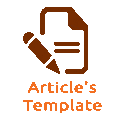CRITICAL ANALYSIS OF THE FORMAL PASRAMAN CURRICULUM
DOI:
https://doi.org/10.25078/vidyottama.v8i1.2840Keywords:
Formal Pasraman, Curriculum Structure, PMA 10 of 2020, National Education Standards, Critical Studies, Hindu-Based Schools.Abstract
Formal Pasraman is a form of Hindu Religious education, which consists of Primary Widya
Pasraman, Adi Widya Pasraman, Madyama Widya Pasraman, Main Widya Pasraman and Maha
Widya Pasraman. The Pasraman curriculum is regulated in articles 8 and 9, which state explicitly
that the curriculum consists of the Hindu religious curriculum and the general education
curriculum. The formal pasraman curriculum must be able to meet the competencies of 21st
century graduates. The relevance of the formal pasraman structure as well as the rationalization of
the curriculum structure that has been stipulated in PMA No. 10 of 2020 is very important to study.
For this reason, this research was conducted using a qualitative descriptive research method, in a
critical study with a literature study approach. The results of the research were found as follows; 1.
The relevance of the pasraman curriculum structure; analyzed from the nine national education
standards of education, taking into account aspects of flexibility, the basic logic of the curriculum,
dimensions and supporting aspects, it is concluded that the formal pasraman, especially in terms of
curriculum structure, is not yet relevant to the needs of the 21st century. others, as well as the
orientation of the analysis of the planning context, process and results of formal pasraman content,
to create Hindu-based superior quality schools.
References
Al-Shanawani, H. M. (2019). Evaluation of Self-Learning Curriculum for Kindergarten Using Stufflebeam’s CIPP Model. SAGE Open, 9(1), 215824401882238. doi:10.1177/2158244018822380
Amon, L., & Harliansyah, H. (2022). Analisis Kompetensi Manajerial Kepala Sekolah dalam Perencanaan Peningkatan Mutu Pendidikan Menengah Kejuruan. Jurnal Ilmiah Manajemen Dan Kewirausahaan, 1(1), 147-162. https://doi.org/10.55606/jimak.v1i1.258
Braun, T., Cottrell, R., & Dierkes, P. (2017). Fostering changes in attitude, knowledge and behavior: demographic variation in environmental education effects. Environmental Education Research, 24(6), 899–920. doi:10.1080/13504622.2017.1343279
Hidayat, T., & Kosasih, A. (2019). Analisis Peraturan menteri pendidikan dan kebudayaan Republik Indonesia nomor 22 tahun 2016 tentang standar proses pendidikan dasar dan menengah serta implikasinya dalam pembelajaran di sekolah. Muróbbî: Jurnal Ilmu Pendidikan, 3(1), 45- 69.
Creswell, John W. (2015). Educational research “Planning, conducting, and evaluating quantitative and qualitative research", Boston: Pearson.
Diana, R.R. 2021, 'Parental engagement on children character education: The influences of positive parenting and agreeableness mediated by religiosity', Cakrawala Pendidikan, vol. 40, no. 2, pp. 428-444, ISSN 0216-1370, https://doi.org/10.21831/cp.v40i2.39477
Kusuma Dewi., N.W.S.P & Ratnaya.G., (2023). Internalization of religious moderation to improve thingking skills of hindu human resources. Vidyottama Sanatana: International Journal of Hindu Sciences and religious Studies, 7(1), 75-82
Menteri Agama R.I. (2020). Perubahan atas peraturan menteri agama nomor 56 tahun 2014 tentang pendidikan keagamaan hindu
Nurholis, Desti., Nyayu Khodijah., & Ermis Suryana. (2022). Analisis kebijakan kurikulum 2013. MODELING: Jurnal Program Studi PGMI 9, (1), 98-114. Accessed July 6, 2023. http://jurnal.stitnualhikmah.ac.id/indep hp/modeling/article/view/1132.
Purnomo, I.M.B.A., & Wasisto, R.H. (2022). Stretegi komunikasi website berita infopasraman.com dalam upaya mempromosikan sekolah berbasis pendidikan keagamaan hindu. Cetta:Jurnal Ilmu Pendidikan ; vol.5 no 1, pp. 10-20, ISSN 2615-0891
Santika, I.G.N., Suarni, N.K & Lasmawan, I.W. (2022). Analisis perubahan kurikulum ditinjau dari kurikulum sebagai suatu ide. Jurnal Education and Development. 10(3), 694-700
Sugiyono. (2021). Metode penelitian kuantitatif, kualitatif dan R&D. Bandung; Alfabeta.
Sukendar, A. 2019, 'Teaching-loving-caring (asah-asih-asuh) and semi-military education on character education management', Cakrawala Pendidikan, vol. 38, no. 2, pp. 292-304, ISSN 0216- 1370.
Shearer, R.L., Aldemir, Tugce., Hitchcock, Jana., Resig, Jessie., Driver, Jessica., & Kohler, Megan. (2019). What students want: A vision of a future online learning experience grounded in distance education theory. American Journal Of Distance Education.doi:10.1080/08923647.2019.1706019
Sutriyanti, Ni Komang. (2020). Persepsi masyarakat hindu terhadap keberadaan pasraman formal di Bali. Jurnal Kajian Bali ; p-ISSN 2088-4443 # e-ISSN 2580-0698
Suwantana, I.G, (2017). Pembentukan karakter anak dalam sistem pendidikan Hindu Kuno. ADI WIDYA: Jurnal Pendidikan Dasar, 2(2), pp.8-18; ISSN: 2527-5445


















